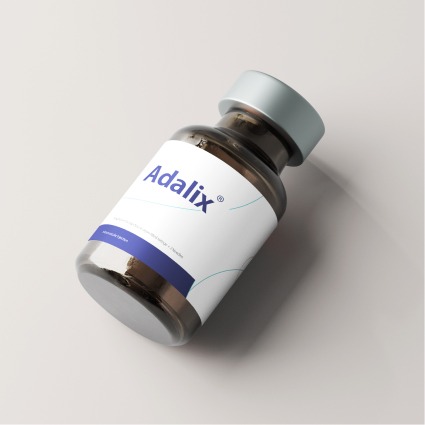The Future of Biopharma in the GCC: Investment Pathways and Strategic Gaps
The Gulf Cooperation Council (GCC) is entering a transformative phase in biotechnology and biopharmaceuticals. No longer content with importing drugs and vaccines, member states are actively investing in cutting-edge platforms ranging from biologics manufacturing to AI-driven drug discovery. This shift reflects broader national visions for economic diversification, healthcare sovereignty, and global competitiveness. Yet the path is not without obstacles. To become a true international hub, the GCC must close critical structural gaps and deploy a coherent investment strategy.
Current Investments in GCC Biopharma
Large-Scale Biologics Manufacturing
Saudi Arabia is leading the charge in localized production of insulin and vaccines. By developing industrial-scale biomanufacturing capacity, the Kingdom is positioning itself not only to meet domestic demand but also to export high-value biologics. Its public investment strategy aims to establish a contract development and manufacturing model that can later expand into more complex cell and gene therapies.
AI-Driven Drug Discovery
The United Arab Emirates is taking a different but complementary path, focusing on artificial intelligence and precision medicine. Partnerships with global pharmaceutical companies are coupled with domestic programs in AI-powered oncology drug discovery. The integration of population-wide genomic programs with AI platforms makes the UAE an emerging testbed for next-generation R&D.
Genomics and Precision Health Infrastructure
Qatar has invested heavily in biobanking and genomics. Its genome and biobank initiatives are now among the most comprehensive in the Middle East, creating fertile ground for pharmacogenomics, disease discovery, and drug repurposing. Bahrain and Kuwait are also progressing national genome projects to support clinical research and precision medicine.
Niche Specializations
Oman is positioning itself as a vaccine manufacturing hub, while Bahrain is developing regulatory and traceability systems that strengthen pharmaceutical quality control. Kuwait is building capabilities around metabolic disease research, with a focus on linking genetic data to chronic disease management.
Structural Gaps Hindering Progress
Lack of Enabling Technologies
Despite investment in fill-finish facilities and insulin production, the region lacks critical upstream capabilities such as viral vector production, plasmid DNA, and lipid nanoparticles. Without these, ambitions in advanced therapies remain constrained.
Limited GMP Testing and Release Infrastructure
The GCC still relies heavily on external laboratories for potency, sterility, and identity assays. This dependence slows down batch release and undermines local autonomy in advanced therapy manufacturing.
Clinical Trial Bottlenecks
Although the GCC boasts modern hospitals and rich genomic datasets, clinical trial activation times remain long compared to global standards. Regulatory fragmentation across member states adds further delays, limiting the attractiveness of the region for first-in-human studies.
Workforce Shortages
The biopharma industry demands highly specialized skills, yet the regional workforce is not yet large enough to meet future needs. Training programs exist but lack the scale required to support multiple new manufacturing sites and advanced research programs.
Market Access Challenges
The high cost of advanced therapies such as GLP-1 analogues and gene-modified treatments poses a sustainability problem for healthcare budgets. Without value-based pricing and outcome-linked contracts, these therapies may remain inaccessible to large populations.
Strategic Investment Priorities
Building the Industrial Base
Upstream Technologies
Investments should target local production of viral vectors, plasmid DNA, and lipid nanoparticles. Establishing regional capacity in these enabling technologies will reduce dependence on global supply chains and enable rapid response to health emergencies.
GMP Testing and Quality Labs
Independent quality-control hubs should be developed to allow for faster lot release and greater trust in the safety of locally produced therapies. These labs must be capable of handling advanced modalities such as gene therapies.
Leveraging Genomic and AI Assets
Trial-Ready Genomics
By linking electronic health records with genomic data, GCC countries can create one of the most advanced infrastructures for adaptive and biomarker-driven clinical trials. This would attract multinational companies seeking efficient trial ecosystems.
AI and Wet-Lab Integration
AI-discovered drug candidates should be rapidly validated in regional wet labs. Funding milestone-driven partnerships can ensure that promising digital discoveries translate into real therapeutic candidates.
Regulatory Harmonization
Centralized Biologics Review
A GCC-level regulatory authority dedicated to biologics and advanced therapies could streamline approvals, harmonize guidance on biosimilars, and facilitate adaptive trial designs.
Adaptive Trial Frameworks
Policies that support rolling reviews, master protocols, and the use of real-world evidence would make the GCC globally competitive for early-phase and complex trials.
Expanding the Workforce
Bioprocess Academies
Specialized academies should be created to train technicians, engineers, and quality professionals in GMP environments. Regional rotations and joint certification programs would ensure talent is shared effectively across member states.
Market-Shaping Mechanisms
Value-Based Procurement
Healthcare systems in the GCC should deploy value-based contracts where payment is linked to patient outcomes. This would ensure sustainable access to costly advanced therapies while encouraging local manufacturing.
A Vision for 2030
Short-Term Milestones (by 2027)
- Local production of key biologics such as insulin and vaccines at an industrial scale
- AI-discovered preclinical drug candidates emerging from regional programs
- Regional bioprocess academies certifying hundreds of GMP-trained staff annually
Mid-Term Goals (by 2030)
- At least five advanced therapies have been manufactured and released in the GCC
- Clinical trial startup times reduced by half through centralized approvals
- Genomic datasets actively powering biomarker-driven clinical studies
- Regional production meeting a significant share of vector and plasmid demand
Long-Term Outcome
By 2030, the GCC has the opportunity to evolve from a consumer of imported therapies to a global exporter of biopharma innovation. With coordinated investment, harmonized regulation, and a skilled workforce, the region can achieve healthcare sovereignty, economic diversification, and international influence in the life sciences.

